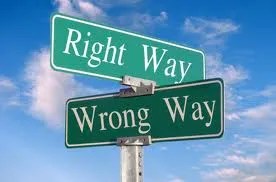America discovered by Welsh 300 years before columbus
As is well known by our American cousins Prince Madog ap Owain Gwynedd heir of Owain discovered America around the year 1200 some 300 years before Columbus and founded a colony near to Alabama (although the exact location of the earlier settlements is in dispute some claiming Tennessee a more likely location). Recent radio carbon dating evidence, and the discovery of ancient Welsh style artefacts (clogs and a leak peeler) and inscriptions in the American Midwest have provided proof positive that Welsh explorers, under the leadership of Prince Madog ap Owain (sometimes put as ‘ap Meurig’ due to name confusion) set up colonies there. There is actually a dispute over when exactly Prince Madoc sailed to America. some claiming that this was much earlier around 562 AD just after the Romans got fed up with the continuous rain in Wales up-sticks and left. This claim however does not stand up to scrutiny as it is known that Prince Madog was one of 19 children of Owain Gwyneth (the first true Prince of Wales) ‘the Randy’ who was an historical figure dating from the 12 century. A Welsh poem of the 15th century tells how Prince Madog sailed away in 10 ships and discovered America and whether truth or myth, was used by Queen Elizabeth I as evidence to the British claim to America during its territorial struggles with Spain. So there you have it the first link in the long history of the Welsh in America.


I could say a lot more about the discovery (but you won’t because I am already fed up ed.) but I will sign off with some fascinating facts:
- By proportion Welsh surnames dominate in eastern states (source National Geographic).
- There have been at least 10 American presidents with Welsh ancestry (Mitt Romney the 11th!!). Thomas Jefferson, James Madison, James Monroe, Abraham Lincoln, John Adams, John Quincy Adams, James Garfield, Calvin Coolidge, Richard Nixon and Barack Obama.
- Jefferson Davies the Confederate President (good Welsh name there).
- Robert E. Lee – Confederate General
- Benedict Arnold – Revolution general who defected from the Americans to the British side (oops!)
- Signers of the declaration of independence: William Floyd, Button Gwinnett, Francis Lewis, Lewis Morris and Robert Morris.
And last of all over 10,000 pages of memoires were written in Welsh that survive today from the American Civil War.
Just a little knowledge bomb to lay on you; the Welsh patronymic system describes family trees in terms of the male line and records the family association in the ‘ap’ or ‘ab’ prefix (ap is a contraction of the Welsh word ‘mab’, which means ‘son of’, ‘ferch’ means ‘daughter of’ incidentally) so Madog ap Owain means Madog son of Owain. Often a small epithet to the name like Llewellyn ‘the last’ (the last true Prince of Wales) is also used and so in a more contemporary context we might regard the real name of Mitt Romney (as he claims Welsh heritage via his wife) as Mitt Romney ap George the Gaff Prone in celebration of his recent gaff that the UK was not prepared for the Olympics (which is probably true actually).
For more information about the Welsh in America visit : http://www.alabamawelsh.com/ and if your interested in signing the petition to restore a monument to the great prince go here:
http://www.petitiononline.com/AWA0987/petition.html



